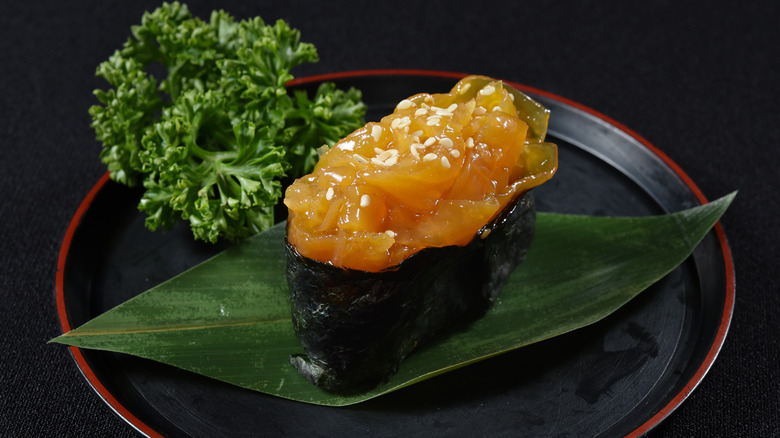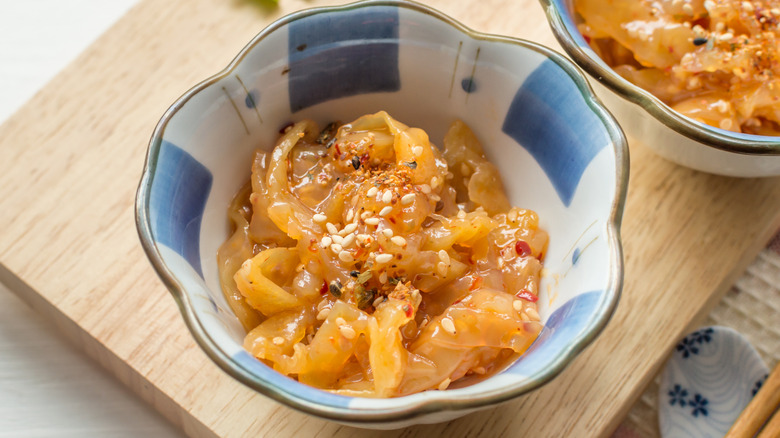Jellyfish Just Might Be The Best Piece Of Sushi You Have Yet To Try
If you've had sushi, you've probably eaten the prudent, familiar choices for raw fish like albacore (longfin tuna), hamachi (yellowtail), salmon, and unagi (eel). While these options are customary and delicious, why not tap into your adventurous side and try something less common but equally scrumptious like jellyfish for your next sushi meal?
The first thing that pops into your head when imagining eating jellyfish is probably a gooey, slimy texture that isn't exactly mouthwatering. However, Hiroyuki Naruke, executive chef of LA's Q Restaurant (formerly Q Sushi), tells Thrillist jellyfish (or kurage in Japanese) has been a favorite dish for many of his customers. He prepares it cut into pieces, served in a small bowl with sesame sauce. It isn't soft or slimy like one might expect; in fact, Naruke describes it as having a "slight crunch and is clean and bright in flavor." A popular delicacy in Japan and China, raw jellyfish is often described as having a texture similar to squid or octopus, is slightly salty and mild in flavor, and is often served in strips with soy sauce and vinegar or wrapped in seaweed in a traditional sushi roll.
Preparing jellyfish to eat safely
Not all jellyfish are edible. Only about a dozen varieties are safe to eat, and they must be thoroughly cleaned and carefully prepared to get rid of harmful bacteria. It is typically soaked in brine for a few days and dried before being served. The color can indicate freshness: Light yellow or white raw jellyfish is generally safe to eat, while darker yellow or brown indicates it may be unsafe for consumption. Keep in mind, however, that the soy sauce and other marinades restaurants add to jellyfish can alter the color. In addition to sushi rolls, jellyfish is often served in Japan as a dish called chuka kurage, which means seasoned jellyfish. This consists of strips of jellyfish cooked in sesame seeds or oil with seasonings such as red chili flakes.
When prepared correctly, jellyfish is not only safe to eat raw but has nutritional benefits, including being a source of protein and antioxidants. Eating unusual or alternative proteins can promote sustainability and is ecologically friendly, since a rapidly growing jellyfish population is detrimental to fish species and the ocean's ecosystem. So, if you're eco-conscious and into trying new foods, don't rule out jellyfish for your next sushi variety.

